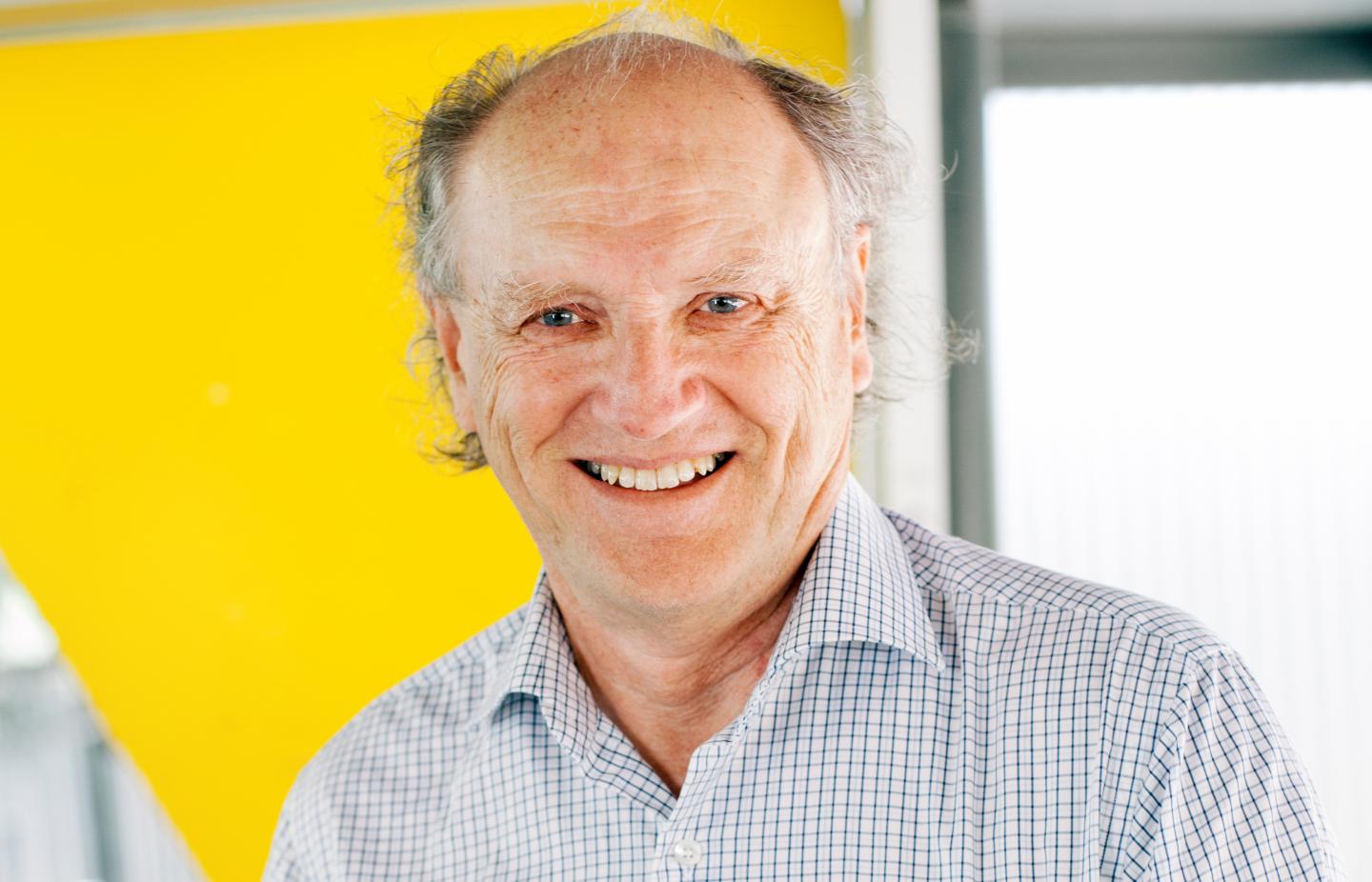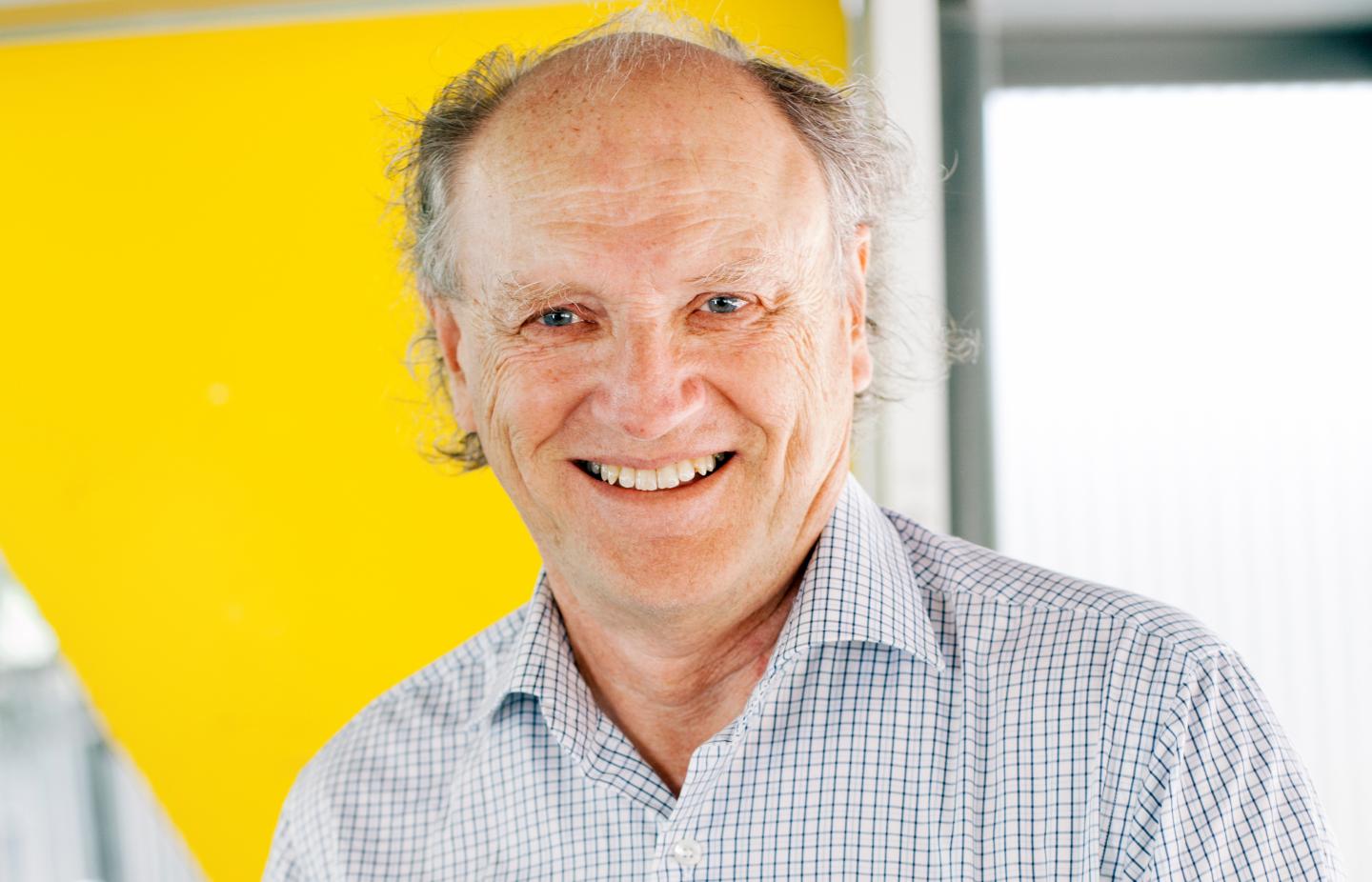
Credit: The University of Queensland
University of Queensland microbiologist Emeritus Professor John Fuerst has a new bacterial genus (a group of related organisms) named in his honour.
In a paper published in Frontiers in Microbiology, German and UK researchers named a new marine bacterium, Fuerstia marisgermanicae.
UQs School of Chemistry and Molecular Biosciences Head Professor Paul Young said the naming of the genus was "an enormous honour".
"It reflects the global scientific community's high regard for John's contribution to the field," Professor Young said.
"John has carved out an international reputation in marine and aquatic microbial research, focused on solving major questions in evolutionary microbiology, microbial cell biology and microbial ecology.
"The group of bacteria that the new Fuerstia genus belongs to are called planctomycetes, which are important in global carbon and nitrogen cycles.
"Among other seminal discoveries, Professor Fuerst's group uncovered the first evidence that planctomycetes stand at the evolutionary interface between bacteria and eukaryotic cells, possessing a rudimentary nuclear envelope.
"There is no doubt John has played a key role in planctomycete research and it is fitting his achievements are now recognised in this way."
Professor Young said Professor Fuerst's work was a clear example of the exceptional microbiology research conducted at UQ.
As a discipline, UQ microbiology is consistently placed among the top 30 in the world by most university ranking schemes – for example, see the US News Best Global Universities ranking for 2015."
Professor Fuerst said he felt very privileged to be accorded the honour, which also recognised the achievements of his postgraduate students and colleagues in his laboratory, as well as UQ and international collaborators in pioneering research about planctomycete bacteria.
"Planctomycetes include bacteria that are significant for environmental remediation and sustainability due to their ability to oxidise ammonia without the need for oxygen," he said.
"They are also important in understanding the global nitrogen cycle as a major source of atmospheric nitrogen, and are of fundamental significance for understanding the diversity and origins of cell complexity.
"For example, the newly described Fuerstia marisgermanicae cells have tubes connecting mother and daughter cells during division, an unusual feature for bacteria."
The Frontiers in Microbiology paper describes the new bacterial genome, which has 45 "giant genes" greater than 5 Kb long, and a complete "bacterial immune system" used to defend bacteria against their virus attackers.
Academics from Leibniz Institut DSMZ (Deutsche Sammlung Von Mikroorganismen und Zellkulturen) Braunschweig, Germany; Newcastle University UK; and Helmholtz Centre for Infectious Disease, Germany, conducted the research.
###
Media Contact
John Fuerst
[email protected]
@uq_news
http://www.uq.edu.au





